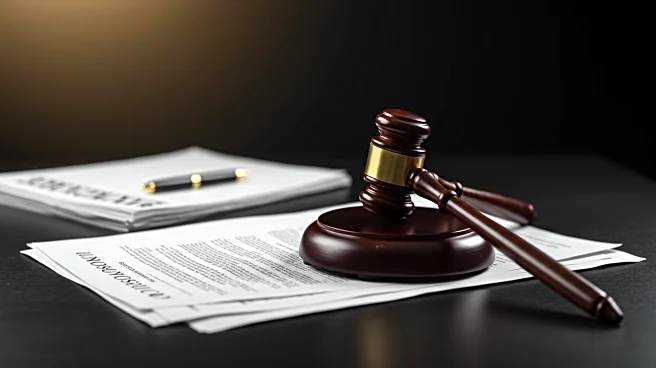What's Happening?
The University of Michigan has announced its intention to appeal the NCAA's ruling following an investigation into sign-stealing and recruiting violations. The NCAA found 'overwhelming evidence' that former staffer Connor Stalions led a scheme to steal signs from opposing teams. The investigation also uncovered recruiting infractions and a lack of cooperation from individuals associated with the program, including former head coach Jim Harbaugh and current coach Sherrone Moore. Penalties include show-cause orders for Harbaugh and Moore, fines potentially exceeding $20 million to $30 million, and a 25% reduction in official visits for the 2025-26 school year. Despite these sanctions, Michigan avoided a postseason ban, and past achievements, such as the 2023 national title, remain intact.
Why It's Important?
The sanctions against Michigan have significant implications for the university's football program and its reputation. While the financial penalties are substantial, they are manageable given the school's revenue exceeding $200 million. However, the damage to Michigan's reputation could be more lasting, as the university prides itself on its academic record and the 'Michigan Man' ideal. The appeal process will be crucial in determining whether the university can mitigate these reputational impacts and maintain its standing in collegiate athletics.
What's Next?
Michigan plans to appeal the NCAA's decision, arguing that the ruling contains fundamental errors in interpreting NCAA bylaws and conclusions contrary to the evidence. The university is considering all options to ensure a fair result. The appeal process will likely involve further scrutiny of the evidence and arguments presented by both sides, potentially leading to adjustments in the penalties imposed.
Beyond the Headlines
The case highlights broader issues within collegiate sports, such as the ethical implications of sign-stealing and recruiting practices. It raises questions about the balance between competitive advantage and fair play, as well as the role of institutional oversight in preventing such violations. The outcome of Michigan's appeal could set precedents for how similar cases are handled in the future.









